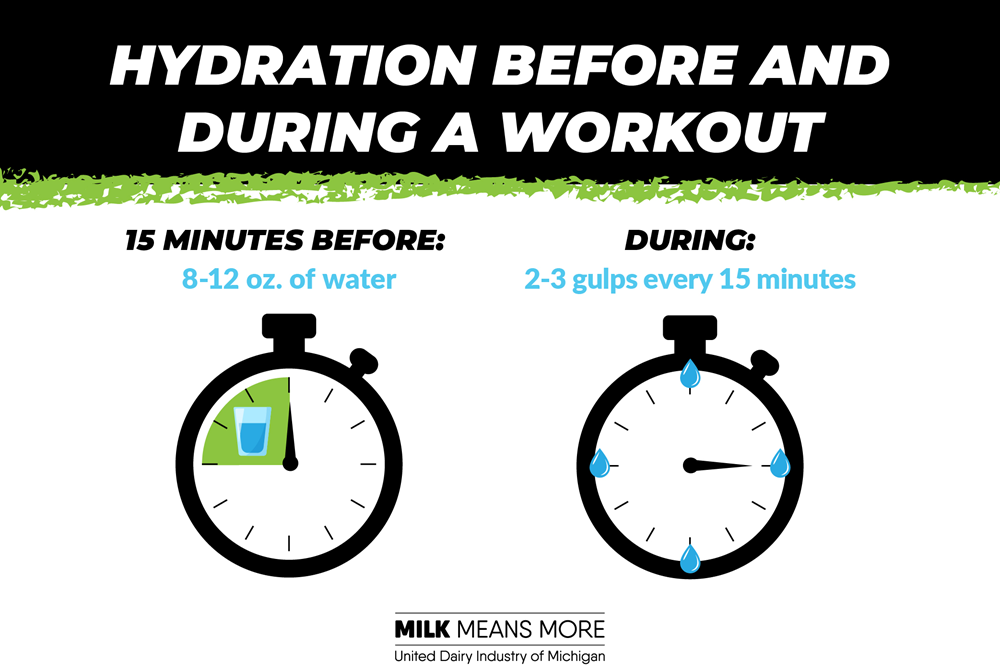
Coach's Guide to Nutrition: Hydration
June 10, 2024
Stay hydrated during exercise. Encourage athletes to take at least 2-3 sips (2-3 ounces) of water every 15 minutes.
 Exercising for more than an hour? Sports drinks can help replace fluid, carbs and electrolytes.
Exercising for more than an hour? Sports drinks can help replace fluid, carbs and electrolytes.
Some athletes do not feel thirsty while they are active, so regular water breaks are important. As always, if they feel thirsty, let them grab a drink. If they feel dizzy, confused or nauseated, they should STOP and tell a coach or teammate. This may indicate they are dangerously dehydrated. Access to water should NEVER be used as a punishment.
Athletes should also look for these symptoms in teammates and remind them to hydrate when necessary. For a more individualized recommendation or for athletes with a cramping history, refer them to a Registered Dietician Nutritionist (RDN).
Dehydration Warning Signs:
- Cramping
- Nausea
- Dizziness
- Confusion
Information above is excerpted from UDIM’s A Coach’s Guide to Nutrition.
Coaches Guide to Nutrition: Underfueling
October 28, 2025
Athletes push their bodies to perform at high levels — and that requires consistent, adequate fueling.
Without enough calories to support training, recovery, daily life, and growth, performance and overall health can suffer.
In fact, underfueling — whether intentional or unintentional — can lead to a serious condition called Relative Energy Deficiency in Sport (REDs), which affects both male and female athletes.
Don’t let low energy hold you back! Fuel your body, protect your health, and train strong.
Information above is excerpted from UDIM’s A Coach’s Guide to Nutrition.

